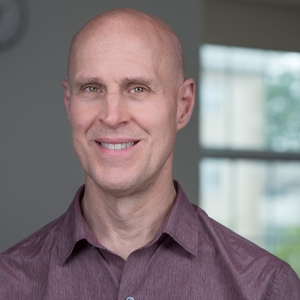
Rob Lauzon
Research interests
Programmed cell death (PCD) and programmed cell clearance (PCC) in colonial ascidians, a group of marine chordates.
My laboratory investigates the mechanisms underlying programmed cell death (PCD) and programmed cell clearance (PCC) in colonial ascidians, a group of marine chordates that represent our closest invertebrate ancestors. PCD (a form of cell suicide) and PCC are both essential processes in the development and homeostasis of multicellular animals. Cells are endowed with the capacity to self-destruct in response to intrinsic or extrinsic signals, and execute an intracellular death program whose core components are conserved throughout evolution. Excess or failure of PCD often leads to embryonic or perinatal lethality. Likewise, recognition and engulfment of dying cells by phagocytes promotes tissue remodeling and the resolution of inflammation. Disruption of PCC promotes chronic inflammation and autoimmune disease. The colonial (budding) ascidian Botryllus schlosseri undergoes cyclical phases of PCD and PCC wherein up to half of the colony mass dies every 5 days, followed by its resorption and the simultaneous emergence of new generation of individuals. Botryllus thus represents a model system that enables us to investigate the functional involvement of both PCD and PCC at the organismal level. My lab investigates the functional involvement of PCD and PCC in development, regeneration and homeostasis of this ancestral chordate. Thus, these colonial animals offer the possibility of studying programmed cell death and clearance, adult stem cell-dependent organogenesis and the potential relationships between these apparently independent life-history processes.
Teaching interests
Cellular Foundations of Life (BIO 104), Topics in Molecular Biology (BIO 205), Microbiology (BIO 352) and Immunology (BIO 355)
Publications
- Kurn, U., Rendulic, S., Tiozzo, S. and Lauzon, R.J. (2011). Asexual propagation and regeneration in colonial ascidians. Biol. Bull. 221:43-61.
- Lauzon, R.J., Kidder, S.J. and Long, P. (2007). Suppression of programmed cell death regulates the cyclical degeneration of organs in a colonial urochordate. Dev. Biol. 310: 92-105.
- Laird, D.J., Chang, W.-T., Weissman, I.L. and Lauzon, R.J. (2005). Identification of a novel gene involved in asexual organogenesis in the budding ascidian Botryllus schlosseri. Dev. Dyn. 234: 997-1005.
- Lauzon, R.J., Ishizuka, K.J. and Weissman, I.L. (2002). Cyclical generation and degeneration of organs in a colonial urochordate involves crosstalk between old and new: a model for development and regeneration. Dev. Biol. 249: 333-348.
Academic credentials
B.S., McGill University; Ph.D., Queen’s University
Integrated Science and Engineering Complex (ISEC) 319
View in Google Maps